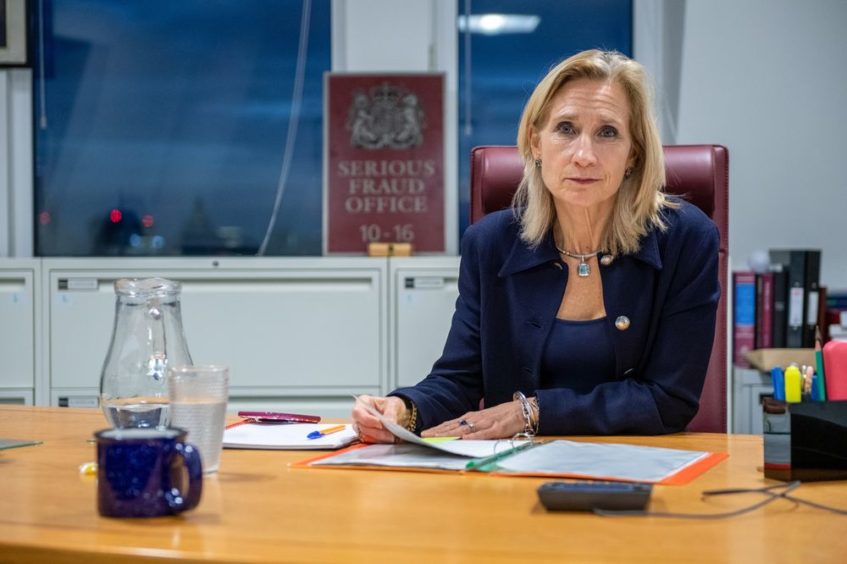
The head of the Serious Fraud Office (SFO) has said a case that saw the conviction of an Aberdeen oil man for bribery “straddled the lockdown period like no other”.
Former Unaoil Iraq territory manager Stephen Whiteley was jailed for three years in June after being convicted of paying £400,000 in bribes to win a contract, along with associate Ziad Akle.
Mr Whiteley was convicted on one count of conspiring to make a corrupt payment, while Mr Akle was jailed for five years on two counts.
Another man is still awaiting sentencing.
Following the toppling of Saddam Hussein as leader of Iraq in 2003, the three men conspired with others to bribe public officials at the Iraqi South Oil Company to secure oil contracts for Monaco-headquartered Unaoil and its clients.
Lisa Osofsky, director of the Serious Fraud Office, said the case is an example of how the SFO has been “very active” during lockdown.
She said: “Convicting three men of corruption in their dealings in Iraq, when they dealt in inflated and corrupt contracts in the aftermath and during devastating wartimes, the Unaoil case, which of course is relevant to your sector, straddled the lockdown period like no other within our criminal justice system.
“We had all the evidence come in before lockdown. Due to Covid-related issues, the jury went out, was out for three months, re-came back in and heard closing speeches and summing up, was able to go out and deliberate. And this was one of the first part-heard cases that were resumed in a Covid-free and Covid-clean courtroom.
“In that case we convicted two of the three who went to trial, one of whom had already plead guilty. Two were convicted. One is awaiting re-trial because it was a hung jury as to that one individual.”
The SFO carried out a four-year investigation into the incident which saw the Aberdeen oil boss jailed. Mr Whiteley, 64, was also vice-president of SBM Offshore.
Ms Osofsky, previously the deputy general counsel of the FBI and money laundering reporting officer at banking giant Goldman Sachs, was speaking on the final day of Oil and Gas UK’s (OGUK) legal conference.
She also pointed to the recent Afren fraud and money laundering case in Nigeria to show how the oil and gas industry can be susceptible to corruption.
Ms Osofsky said: “It’s no secret that those operating in oil and gas can be vulnerable to corruption. Some of the jurisdictions in which you and your clients do business are high risk for bribery and corruption and, in entering into critical contracts, you’re often dealing with state officials, some of whom may be open to, expecting or actually demanding bribes.
“Especially from far away, it isn’t always easy to assess what services are actually being provided and whether money intended for bribes is hidden within payments for these services.
“We know it can be very difficult for a company, for example, headquartered in the UK but operating in distant portions of the globe to imbed and enforce effective compliance systems in all subsidiaries.
“Yet, under the UK Bribery Act of 2010, a company that is headquartered here can be held responsible for oversight of overseas activities, even as it may not be fully aware of the conduct unfolding there.
“Companies have to structure their compliance systems to address this risk.”
